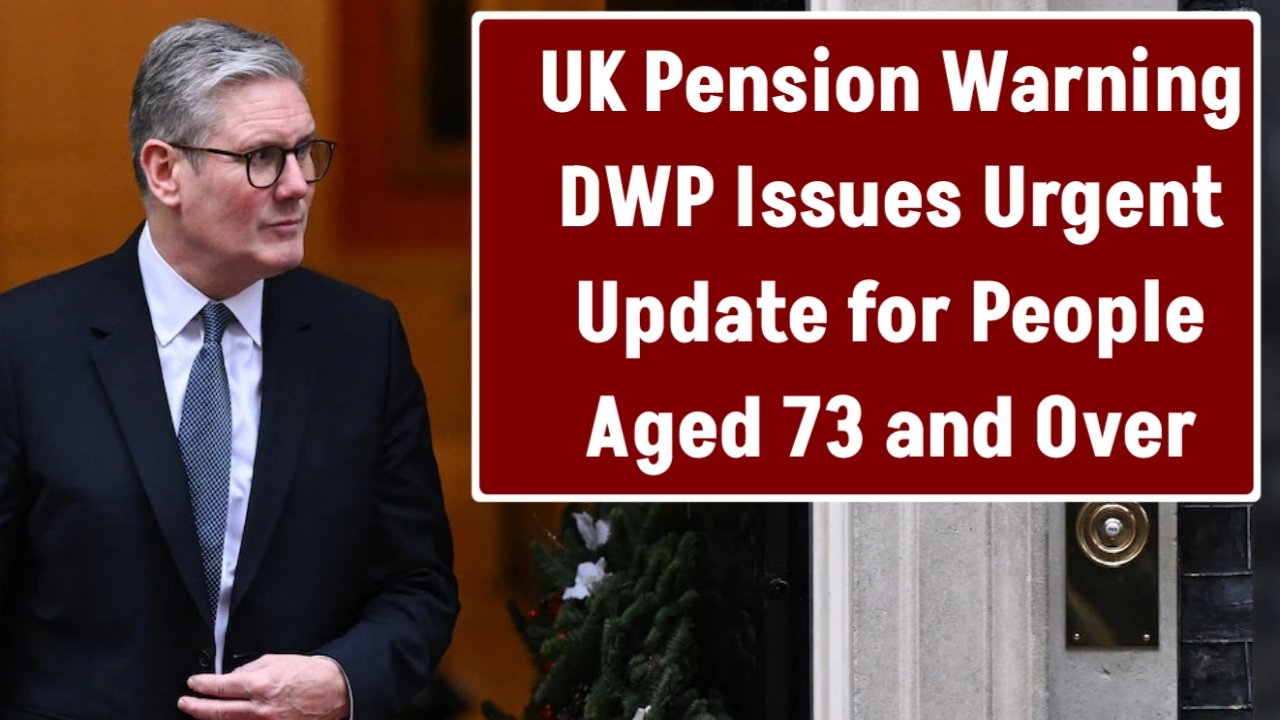The Department for Work and Pensions (DWP) has issued an important update for pensioners in the UK who are aged 73 and above. This announcement may affect both current and future payments, and it is crucial for older citizens to be aware of the changes. The DWP regularly reviews pension eligibility, payments, and entitlements to ensure fairness, accuracy, and compliance. The latest update could potentially impact thousands of pensioners across the country.
Why This Age Group Is Being Targeted
Pensioners aged 73 and over are often part of an older generation that may have missed earlier communications about changes in pension rules or entitlements. In many cases, individuals in this age group may not have updated their personal details, bank information, or living circumstances with the DWP. This has prompted the department to take action to ensure that all eligible pensioners receive the correct support and avoid any overpayments or underpayments.
Common Issues Found in DWP Reviews
When the DWP carries out its reviews, it often identifies a number of common issues that can affect pension payments:
- Missing or outdated personal information
- Unreported changes in marital status or living arrangements
- Bank account changes that haven’t been updated
- Errors in national insurance records
These errors may lead to incorrect payment amounts, delays, or even the temporary suspension of benefits.
What Pensioners Need to Do
If you are aged 73 or over, it is recommended to take the following steps immediately:
- Double-check your personal details on file with DWP
- Inform the DWP of any changes in address, marital status, or bank information
- Review your National Insurance contributions to make sure your record is complete
Taking these steps can help ensure you are receiving the right amount and prevent disruptions in your pension payments.
Impact on State Pension Payments
The DWP’s warning may affect both the Basic State Pension and the New State Pension. While the majority of pensioners are paid correctly, discrepancies can still occur. Some individuals may find they are entitled to back payments if errors are identified. Others might be informed of overpayments, in which case the DWP may arrange a repayment plan.
How to Contact the DWP
For pensioners who believe they may be affected, or for those who simply want to confirm their information is accurate, the DWP provides several contact options:
- Call the Pension Service helpline
- Visit the official GOV.UK website
- Write to the Pension Service directly via post
Make sure to have your National Insurance number ready when contacting the DWP to speed up the process.
The Role of Pension Credit
In addition to state pension payments, some pensioners may be eligible for Pension Credit. This benefit tops up weekly income to a minimum level and may go unclaimed by many. If you are aged 73 or older and living on a low income, you should check your eligibility for Pension Credit. It could make a significant difference to your financial well-being.
Importance of Keeping Records Updated
One of the main reasons pensioners miss out on benefits or face payment issues is because of outdated or incorrect information. Keeping your personal records current is essential. This includes ensuring that:
- Your bank details are up to date
- You report any overseas travel or extended absences
- You notify DWP of any changes to household circumstances
Even minor changes can affect your entitlement, so it’s best to stay proactive.
What Happens if You Are Overpaid
If the DWP finds that you have been overpaid, they will usually notify you by letter. You may be asked to repay the amount in full or through instalments. The repayment method typically depends on your current financial situation. It is important to respond promptly to any correspondence from the DWP and not ignore it. If you disagree with the decision, you have the right to appeal.
Claiming Backdated Payments
In some cases, pensioners may be owed money due to administrative errors or missed entitlements. If the DWP identifies an underpayment, they will usually arrange for the backdated amount to be paid directly into your account. However, you may need to provide supporting documents or verification before the money is released.
Advice for Carers and Family Members
If you are helping a loved one who is 73 or older, ensure they understand the latest update from the DWP. Many elderly pensioners may struggle with forms, online processes, or phone calls. Offering assistance can help them avoid unnecessary stress and ensure their entitlements are protected. You may also consider applying for a Power of Attorney to help manage their financial affairs.
Scam Awareness and DWP Communications
It is important to remember that the DWP will never ask for sensitive information like your full bank PIN or passwords over the phone or email. Any official communication will typically come through letters or the official GOV.UK portal. If you receive a suspicious message or call, report it immediately and do not provide any personal details.
Planning Ahead for Future Pensioners
Even if you are not currently 73 or older, this warning serves as a reminder of the importance of staying informed about pension changes. As you approach retirement age, make sure to:
- Monitor updates from the DWP
- Keep your records accurate
- Understand your entitlements and how they may change over time
Proactive financial planning can reduce future stress and ensure a smoother experience with state pensions.
Final Thoughts
The DWP’s latest warning is a timely reminder for pensioners in the UK, especially those aged 73 and above, to take charge of their financial affairs. By ensuring that all personal and financial information is up to date, pensioners can avoid complications, missed payments, and unnecessary stress. Whether you are directly affected or supporting someone who is, acting now could make a big difference in the future.

